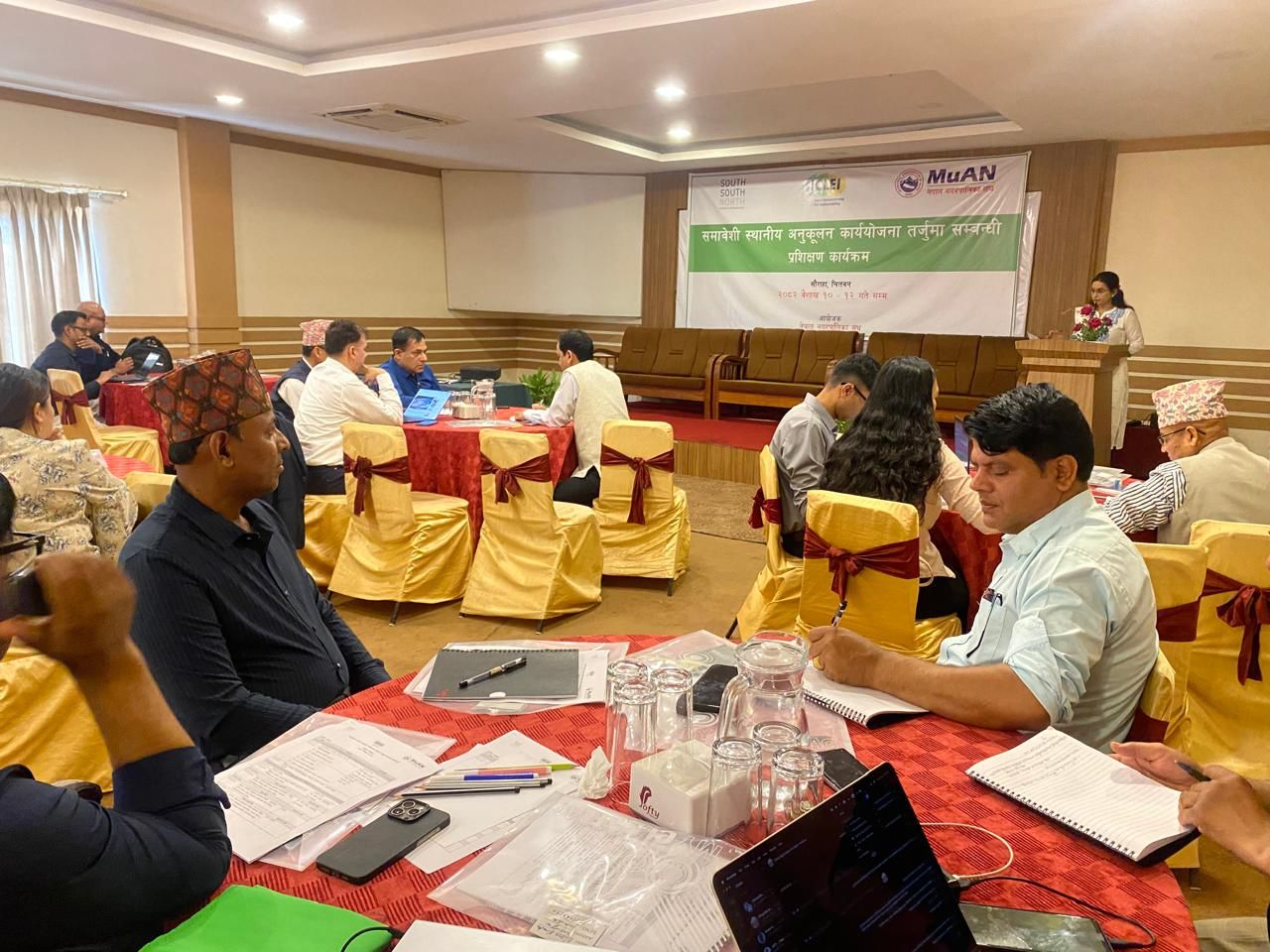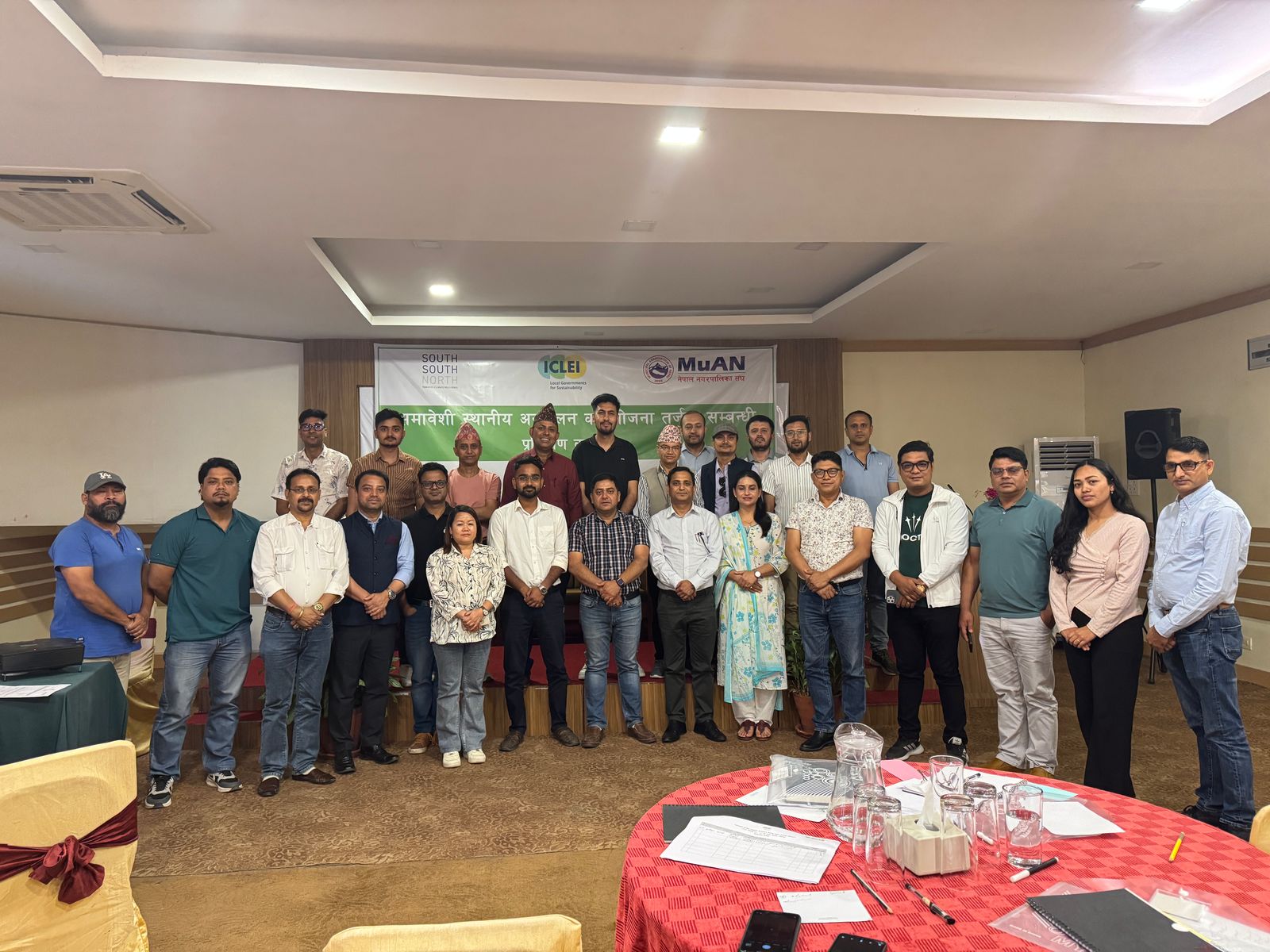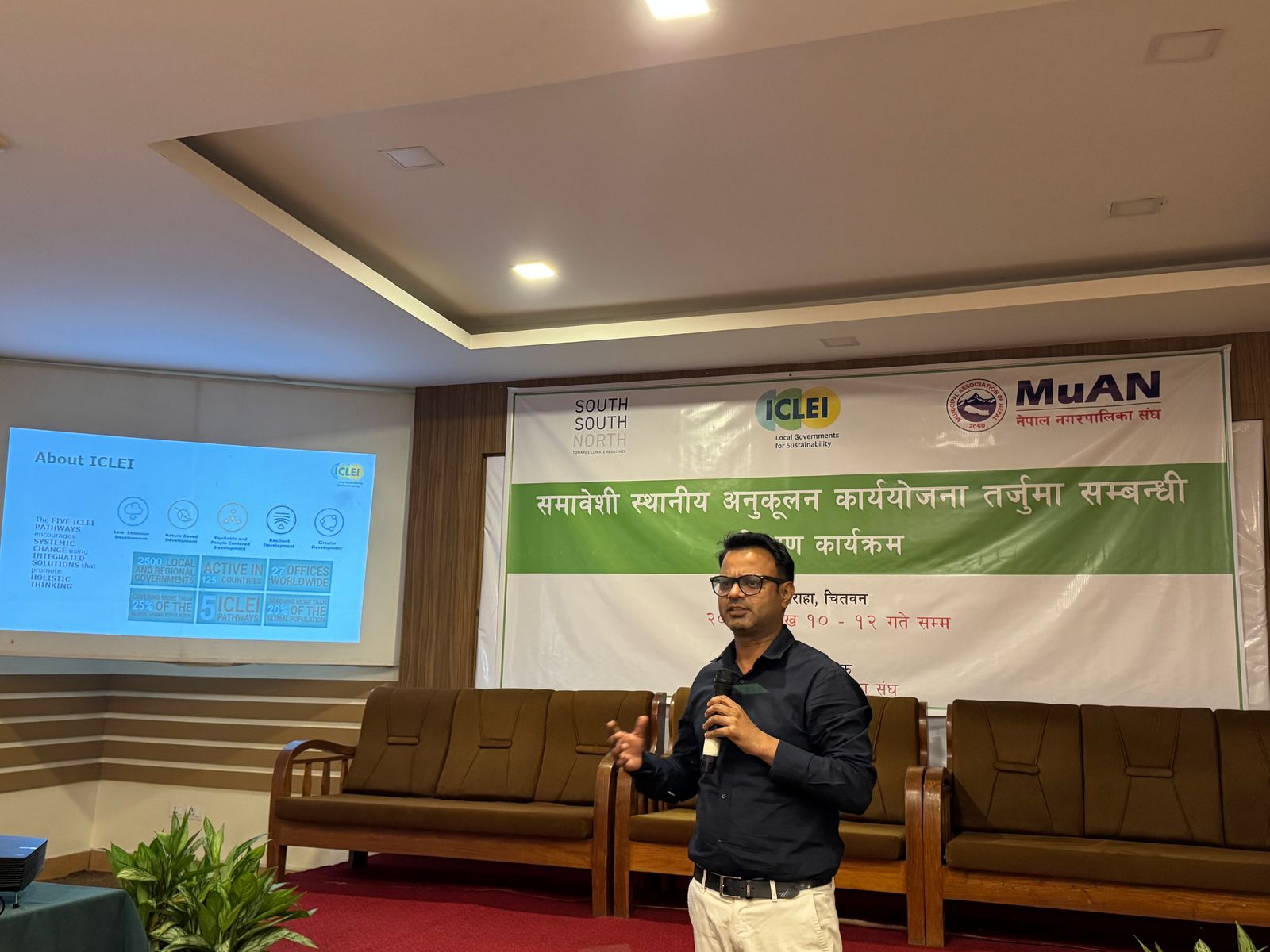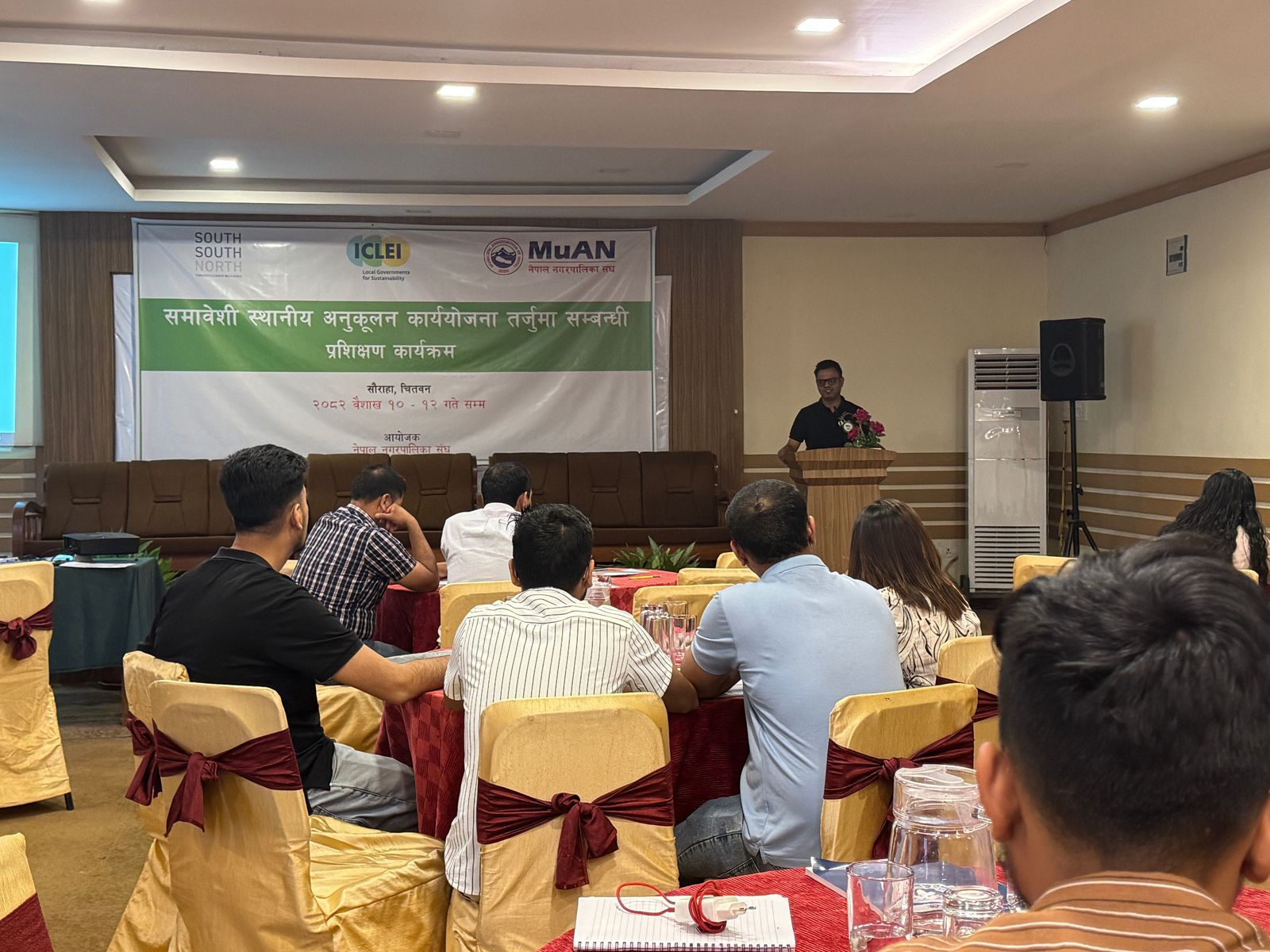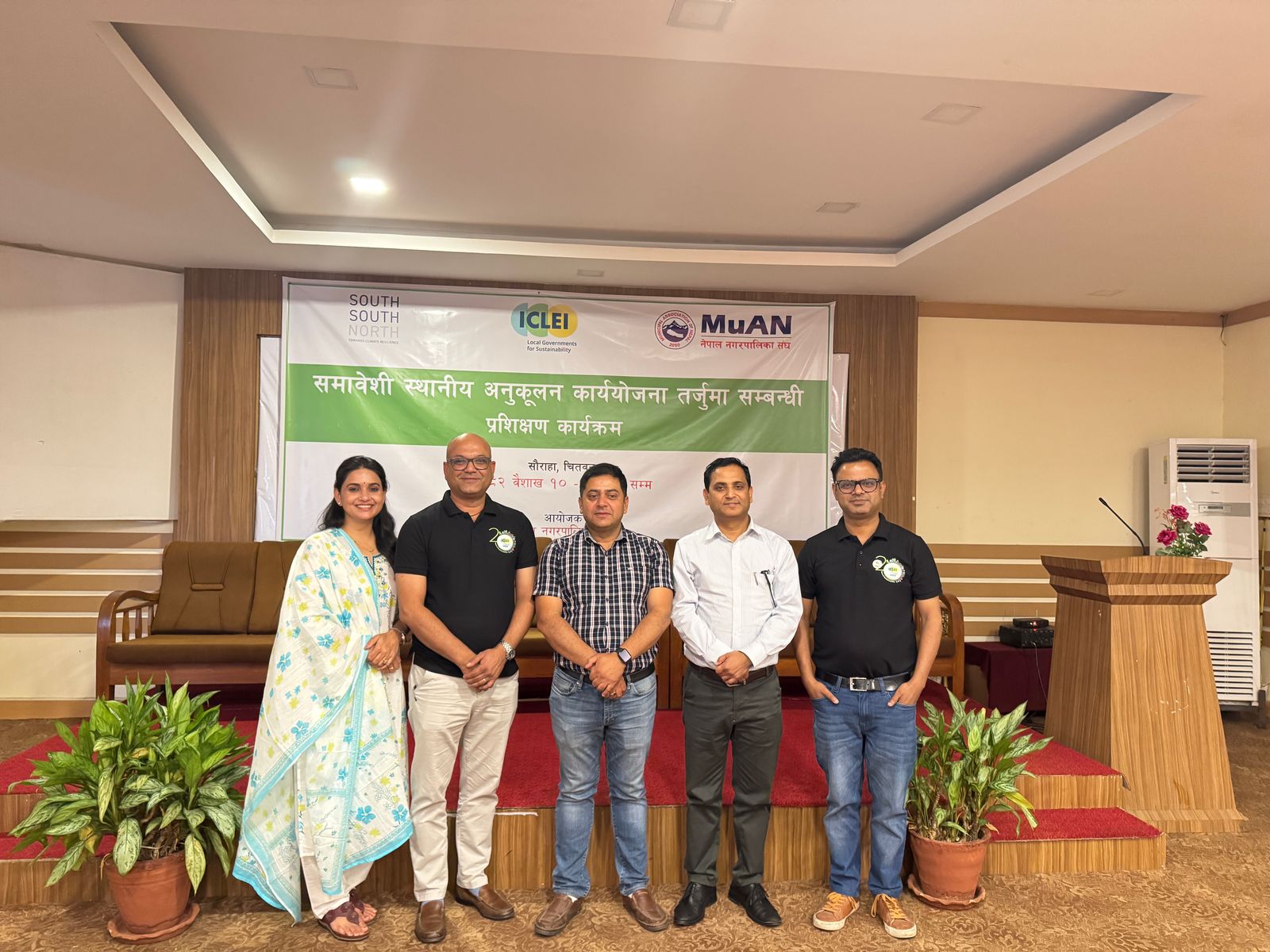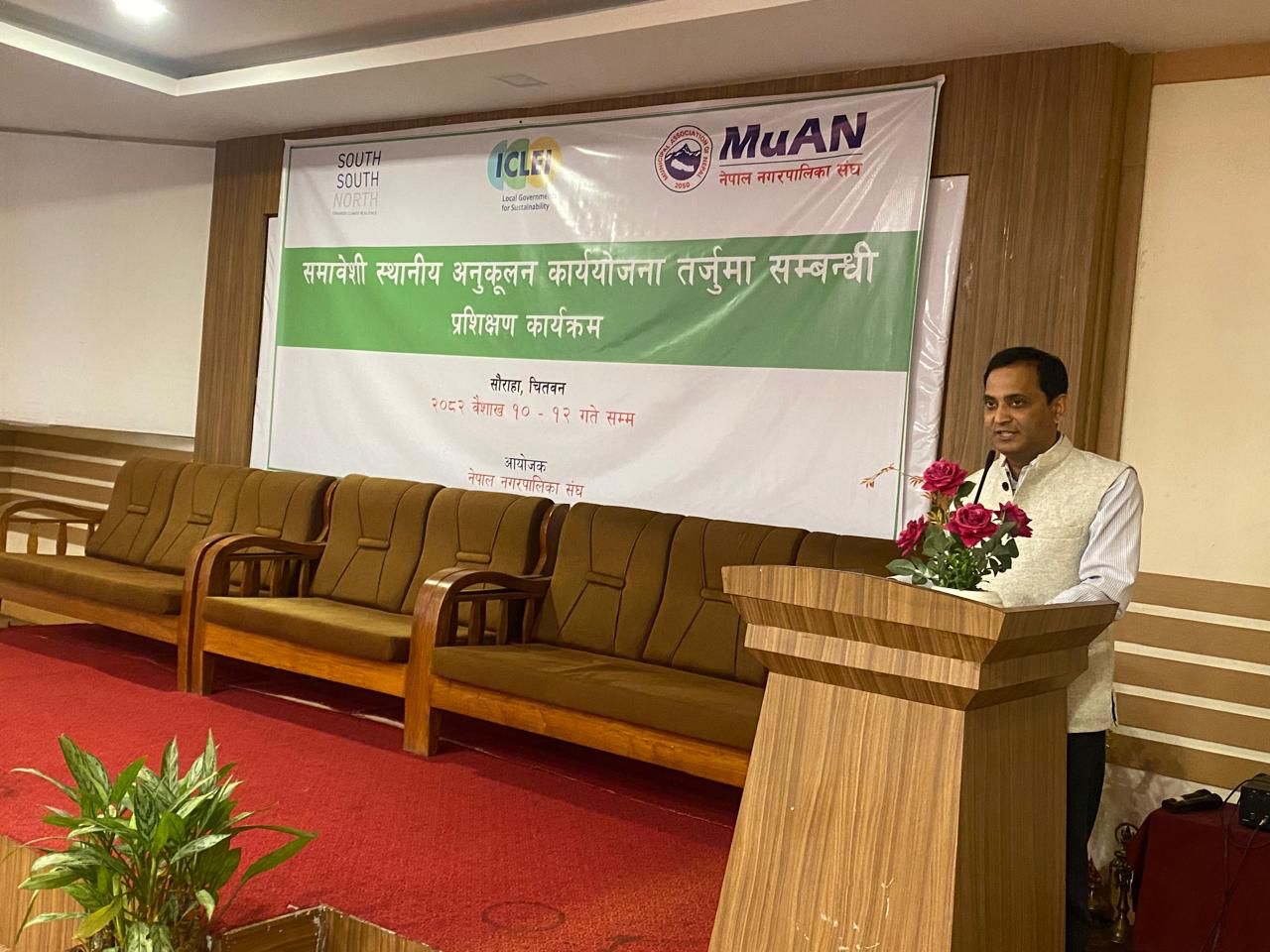Building Local Climate Resilience: Training on LAPA Development in Nepal

The Municipal Association of Nepal (MuAN), in collaboration with ICLEI South Asia, organised a training workshop on developing an Inclusive Local Adaptation Plan of Action (LAPA) from 23 – 25 April 2025, in Sauraha, Chitwan, Nepal. MuAN and ICLEI South Asia conducted the training under the project “Development of an Inclusive Local Adaptation Plan of Action (LAPA) in Nepal and Capacity Strengthening of Provincial Municipal Learning Centres (PMLCs),” supported by the CLimate Adaptation and REsilience (CLARE) Research for Impact (R4I) Hub opportunities fund. CLARE is a flagship research programme on climate adaptation and resilience, co-funded by the UK’s Foreign Commonwealth and Development Office (FCDO) and the International Development Research Centre (IDRC), Canada.
The primary objective of the training was to strengthen the capacity of Provincial Municipal Learning Centres (PMLCs) to develop inclusive LAPAs that integrate Gender Equality and Social Inclusion (GESI), Nature-based Solutions (NbS), and Ecosystem-based Adaptation (EbA). Once equipped with these skills, PMLCs can position themselves better to offer technical guidance to municipalities in formulating their inclusive LAPAs.With their enhanced capacity, PMLCs can provide technical support to municipalities in preparing inclusive LAPAs following the training.
ICLEI South Asia facilitated a session on the “LAPA Development Process,” providing participants with a comprehensive overview of its concepts, objectives, steps, and the critical roles played by various stakeholders. Rahul Singh, Senior Manager (Sustainability), and Megh Dhoj Adhikari, Country Representative, Nepal, ICLEI South Asia, presented and discussed the CRCAP methodology and the LAPA framework, illustrating how Dhulikhel and Karjanha municipalities in Nepal applied these approaches while developing their LAPAs. The training also offered participants a detailed understanding of how to conduct vulnerability assessments.
The workshop had 21 participants—including three women and 18 men—from 10 municipalities, contributing to the ongoing effort to build inclusive, climate-resilient local governance in Nepal.
